To search for specific documents, please use our Resource Library.
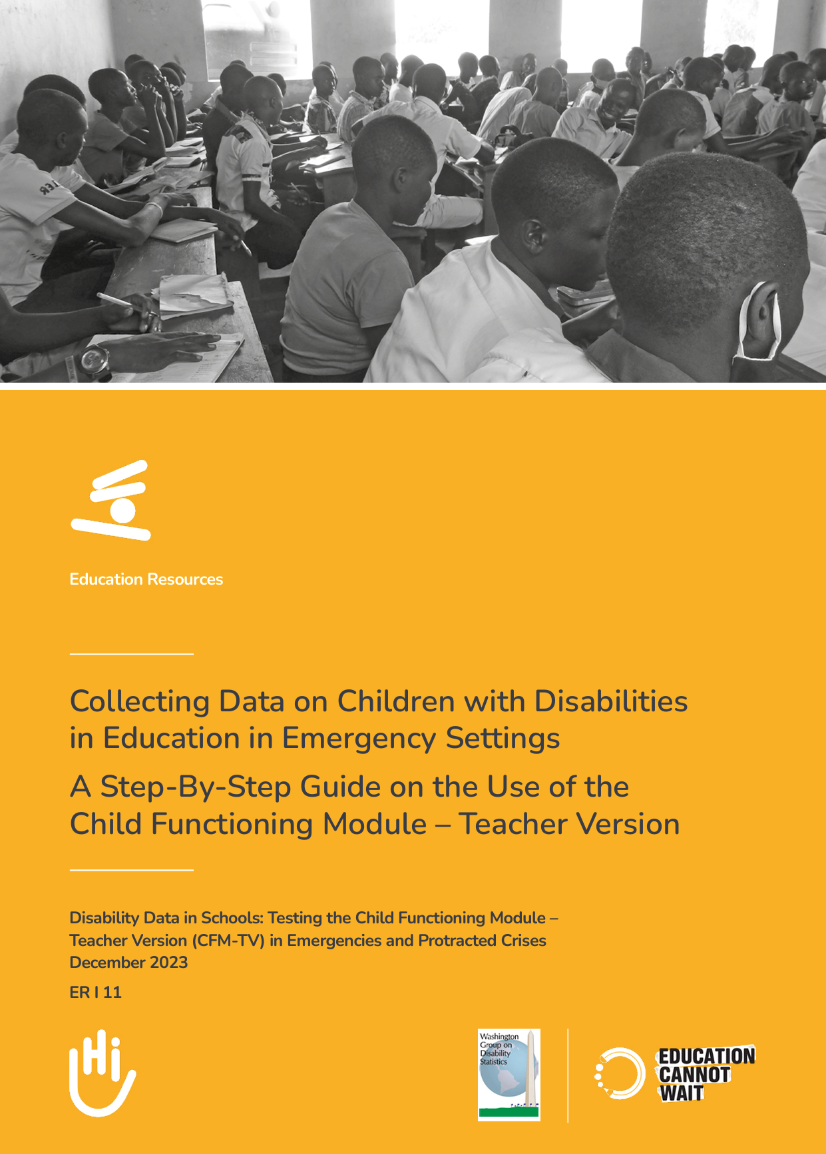
Collecting Data on Children with Disabilities in Education in Emergency Settings: A Step-by-Step Guide on the Use of the Child Functioning Module – Teacher Version, 2023
The DiDa Schools project, "Disability Data in Schools in Emergencies and Protracted Crises" explores the reliability of the Child Functioning Module–Teacher Version (CFM-TV) in challenging contexts, and is implemented by Humanity & Inclusion and funded by ECW's Acceleration Facility. The step-by-step guide on the use of the "Child Functioning Module – Teacher Version" is to design and deliver quality training on this questionnaire and to support education stakeholders to collect disability disaggregated data for projects programming and monitoring in emergencies and protracted crisis.
Resources (English, French, Spanish): Full Guide, Checklist, FAOs on the Child-Functioning Module, 8 Top Tips for Teaching Children with Disabilities in Mainstream Education
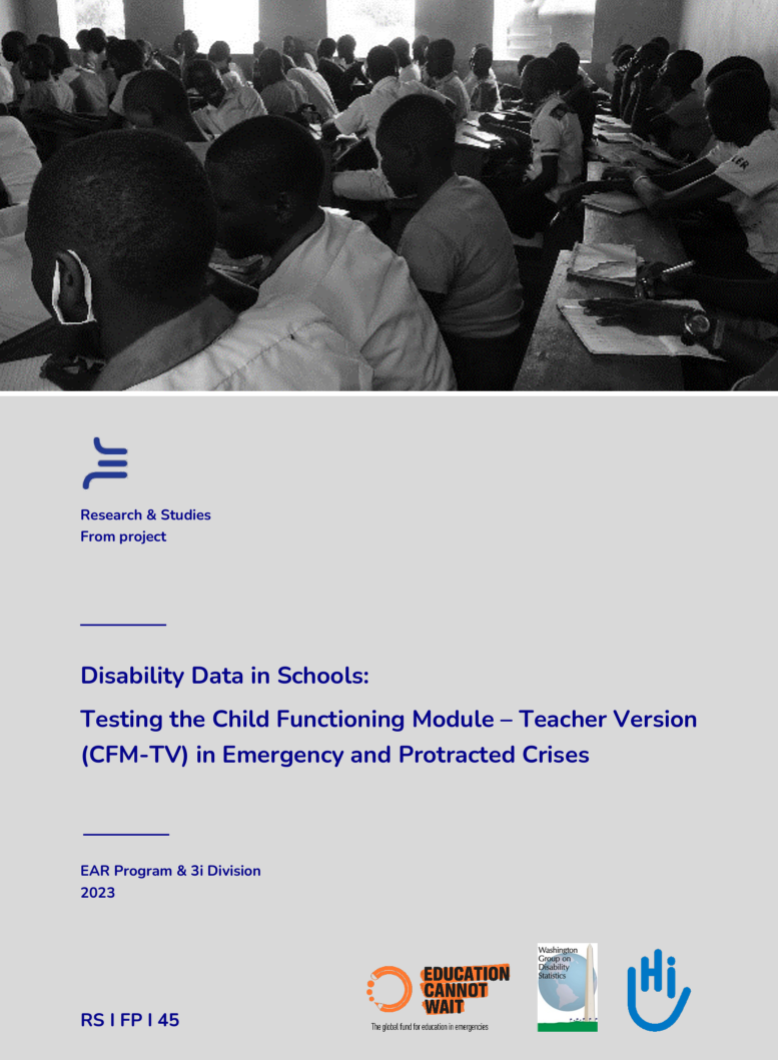
Disability Data in Schools: Testing the Child Functioning Module – Teacher Version (CFM-TV) in Emergency & Protracted Crises, 2023
The DiDa Schools project, "Disability Data in Schools in Emergencies and Protracted Crises" explores the reliability of the Child Functioning Module–Teacher Version (CFM-TV) in challenging contexts, and is implemented by Humanity & Inclusion and funded by ECW's Acceleration Facility. The research highlights how teachers can effectively use the questionnaire to assess students and generate reasonably reliable disability data as proxies. The CFM-TV demonstrates tangible benefits, such as positive changes in teacher attitudes and practices, along with improvements in learner dynamics and participation. The research shows how the CFM-TV can be a promising tool in supporting inclusive education efforts in crises.
Resources: Research Report (English), Research Brief (English, French, Luganda, Swahili), Research Infographic (English, French, Luganda, Swahili)
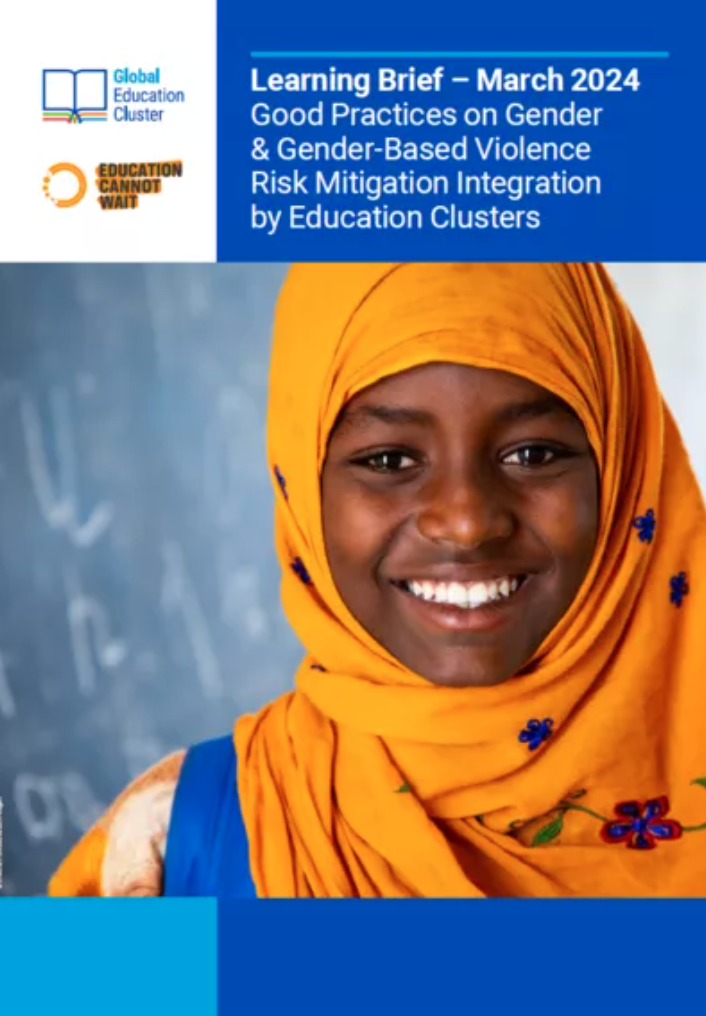
Learning Brief on Gender and Gender-Based Violence Risk Mitigation 2024
The Global Education Cluster's learning brief highlights 20 good practices on Gender and GBV Risk Mitigation integration by Education Clusters throughout the Humanitarian Programme Cycle, featuring three associated country case studies – Afghanistan, Democratic Republic of the Congo and Nigeria. The brief highlights initiatives and provides tips on how to capitalise on enabling factors, bridge gaps, overcome challenges and adapt good practices to other contexts in collaboration with Gender and GBV experts. The development of this brief was made possible through the ECW-GEC partnership under ECW's Acceleration Facility funding window.
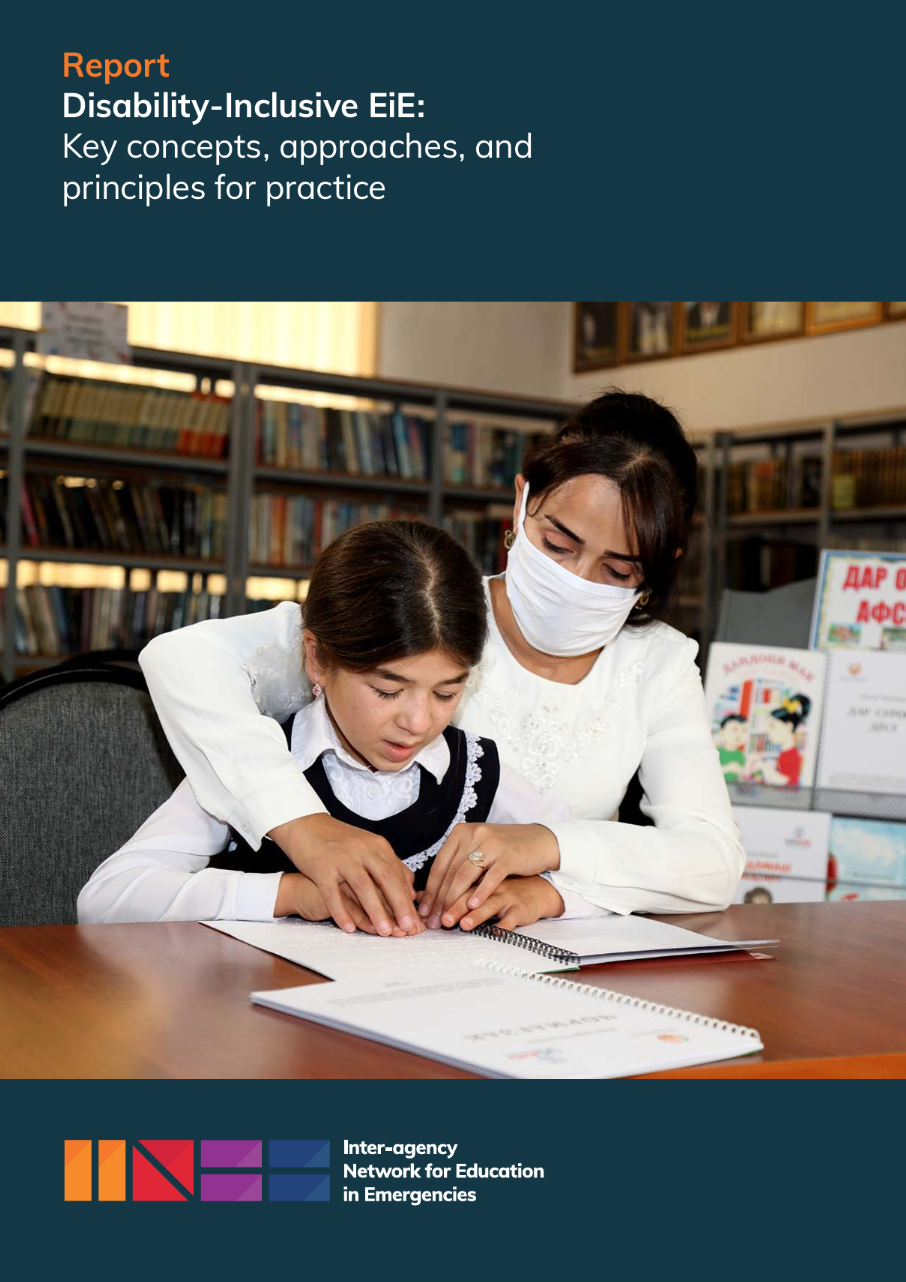
Inter-agency Network for Education in Emergencies (INEE) Inclusive Education Initiative 2023
The resources produced by INEE through ECW's Acceleration Facility aim to contribute to enhancing and strengthening work on disability inclusive education in emergencies and protracted crises. With an ultimate goal of strengthening capacities for designing and implementing both direct inclusive education and programming for children with disabilities, ECW's grant supports the creation of various inclusive education public goods. ECW recommend all partners, donor, humanitarian and development organisations concerned with the inclusion of persons with disabilities in education consult these resources to support and enhance inclusion in a systematic way.
Disability-Inclusive EiE: Key Concepts, Approaches, and Principles for Practice
Mapping and Gap Analysis: Disability-Inclusive EiE Resources
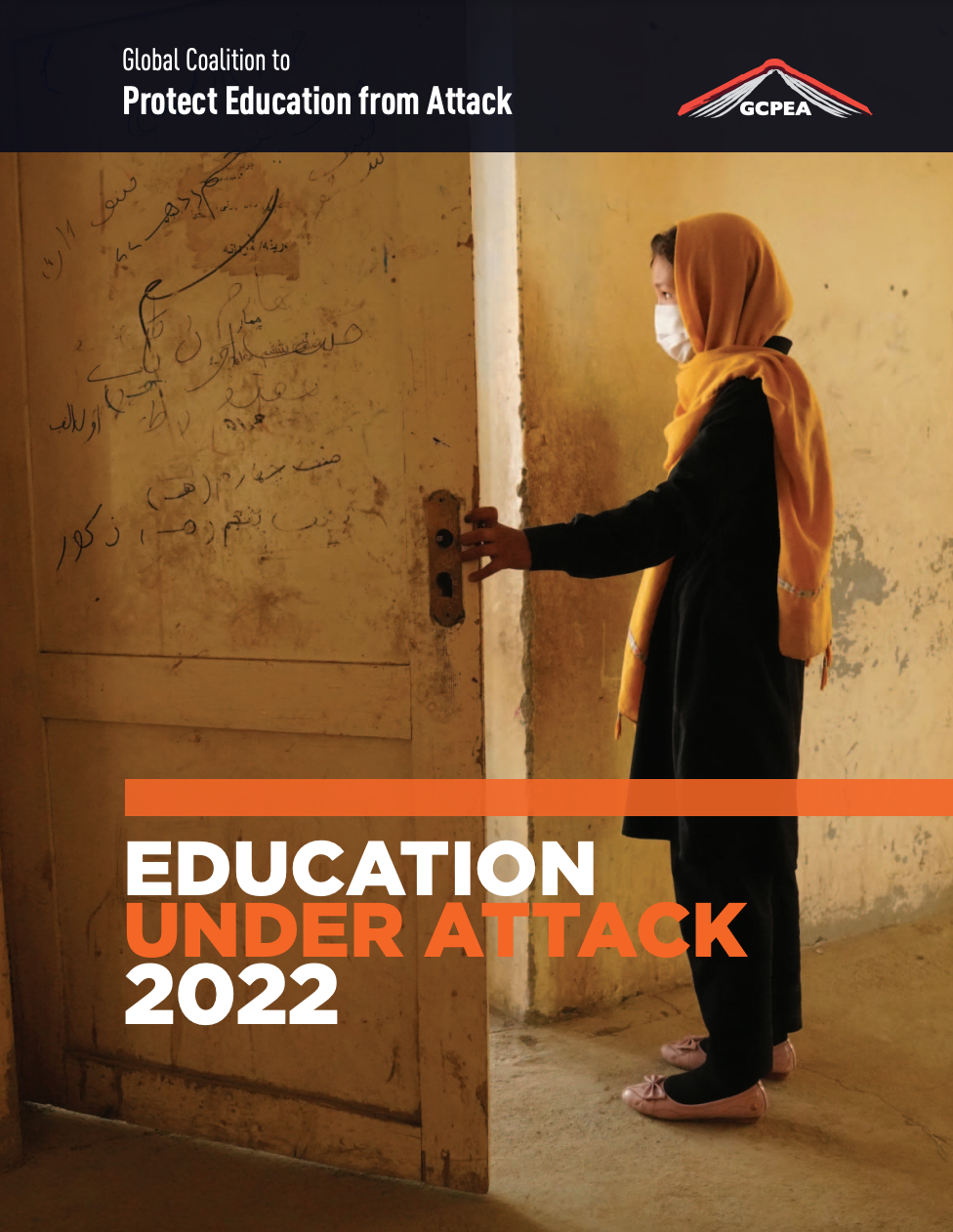
Education Under Attack 2022
A report by the Global Coalition to Protect Education from Attack (GCPEA), "Education Under Attack 2022" looks at a global study of attacks on schools, universities, their students and staff, in 2020 and 2021. Education is under attack around the world. From Afghanistan to Colombia, Mali to Thailand, students and teachers are killed, raped, and abducted, while schools and universities are bombed, burned down, and used for military purposes. Support for the GCPEA "Education Under Attack 2022" report was provided by the Education Above All Foundation, Education Cannot Wait, the Norwegian Ministry of Foreign Affairs, and an anonymous donor.
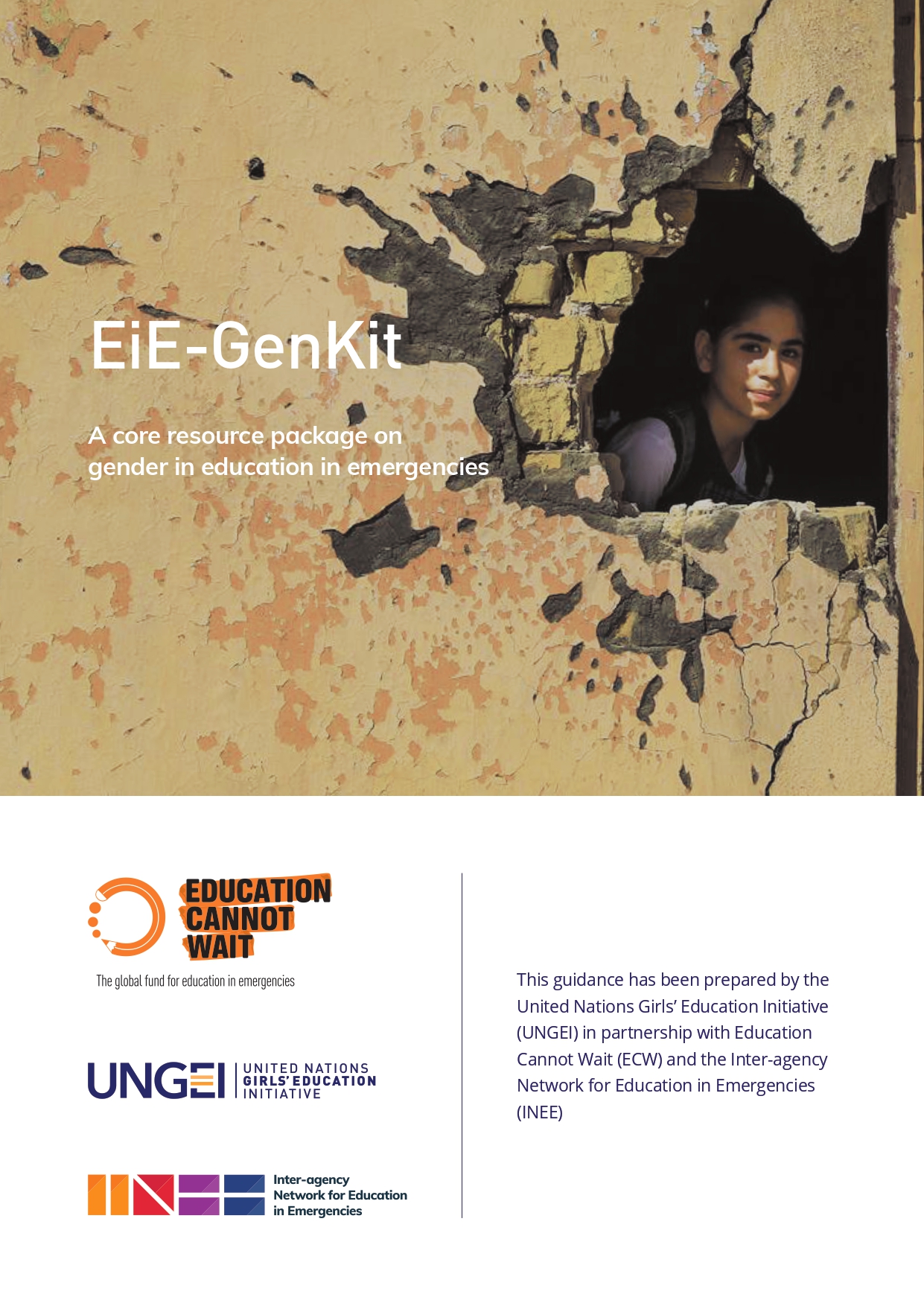
EiE-GenKit: A Core Resource Package on Gender in Education in Emergencies, 2021
When gender-responsive, quality education is available to all, it has the potential to transform societies and build sustainable peace. A joint initiative from the Inter-agency Network for Education in Emergencies (INEE), Education Cannot Wait (ECW) and the UN Girls’ Education Initiative (UNGEI), the EiE-GenKit is a core resource package for gender in education in emergencies.
The EiE-GenKit is the first resource of its kind, providing education practitioners with practical tools to promote gender-responsive programming from crisis to peace and sustainable development. The EiE-GenKit is based on extensive research and consultation with the latest resources, evidence, new tools and good practice available in one easy-to-use package.
The EiE-GenKit is available in a digital format here.
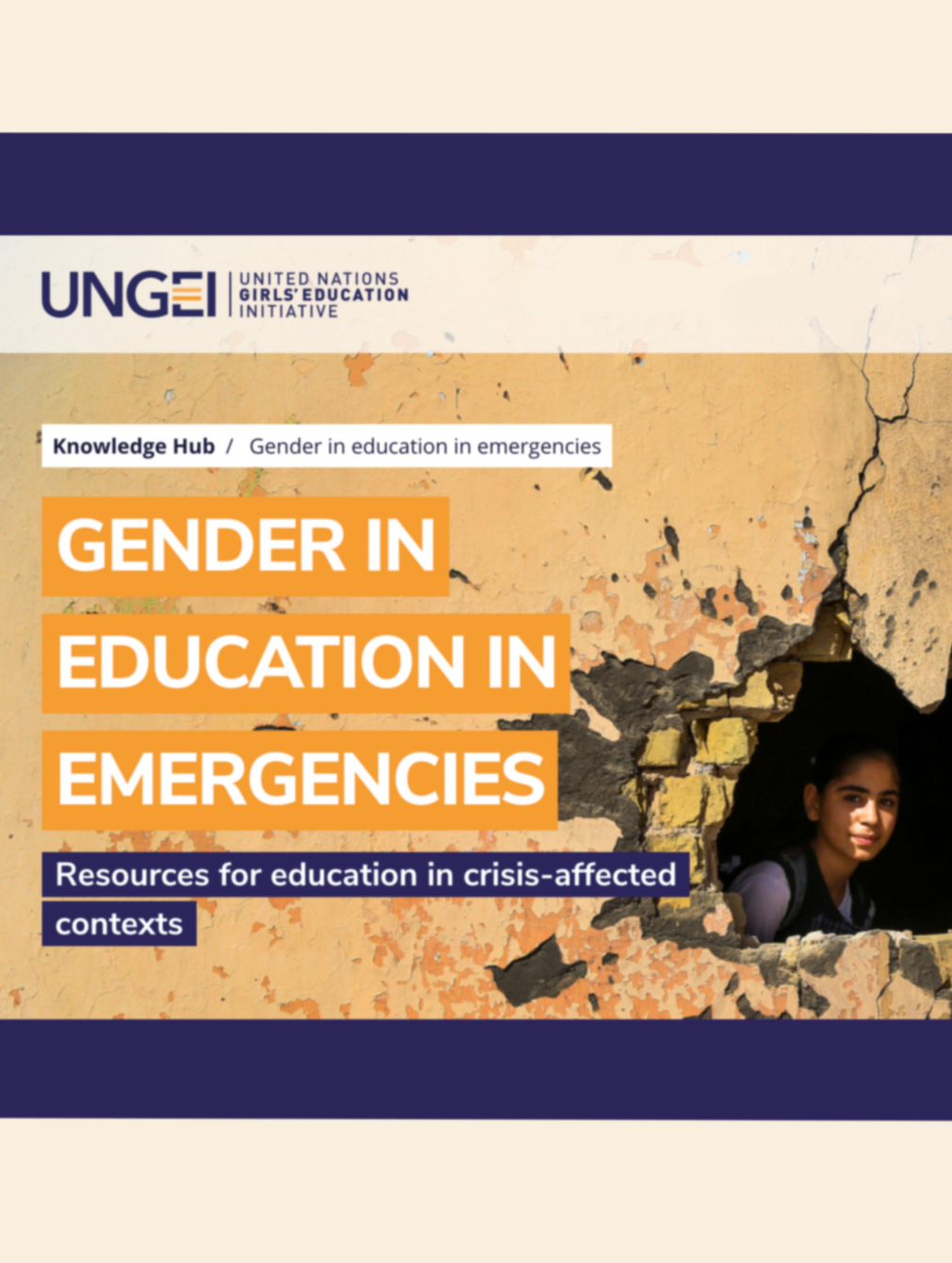
Online Library on Gender in Education in Emergencies (EIE), 2021
As part of its partnership with UN Girls’ Education Initiative (UNGEI), ECW contributed to establish an Online Library on gender and EiE. This dedicated resource centre for gender in education in emergencies provides curated resources and learning content for everyone working to deliver gender-responsive education in crisis-affected contexts.
Access the online library here.
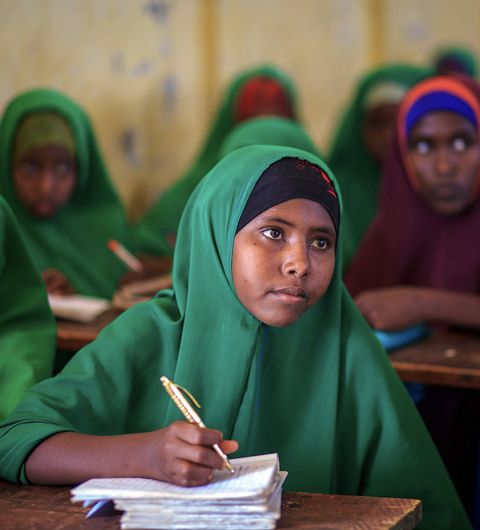
Education in Emergencies: The Key Role of Crisis-sensitive Information Systems, 2021
UNESCO, supported by Education Cannot Wait, NORCAP and the Swedish International Development Association, has published six case studies conducted in Chad, Ethiopia, Palestine, South Sudan, Syria and Uganda, which assess institutional education information systems (EMIS) and the recurring challenges related to the generation and use of data to inform education in emergencies strategies and programmes.
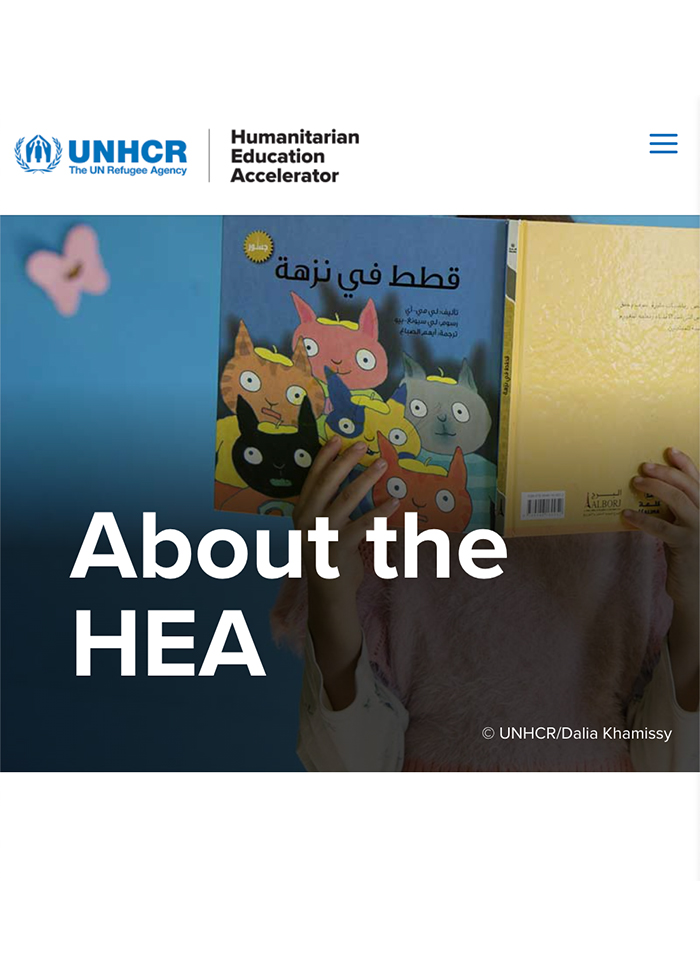
Humanitarian Education Accelerator
ECW funds The Humanitarian Education Accelerator (HEA), a programme led by UNHCR which supports promising humanitarian education innovations to transition from successful pilots to programmes that can operate at scale. The HEA seeks to address gaps in evidence and scaling capacity by taking common elements from an accelerator – such as mentorship, internal capacity building and establishing a cohort that works together – and merging these with an evaluation-based programme.
Learn more about the HEA here.
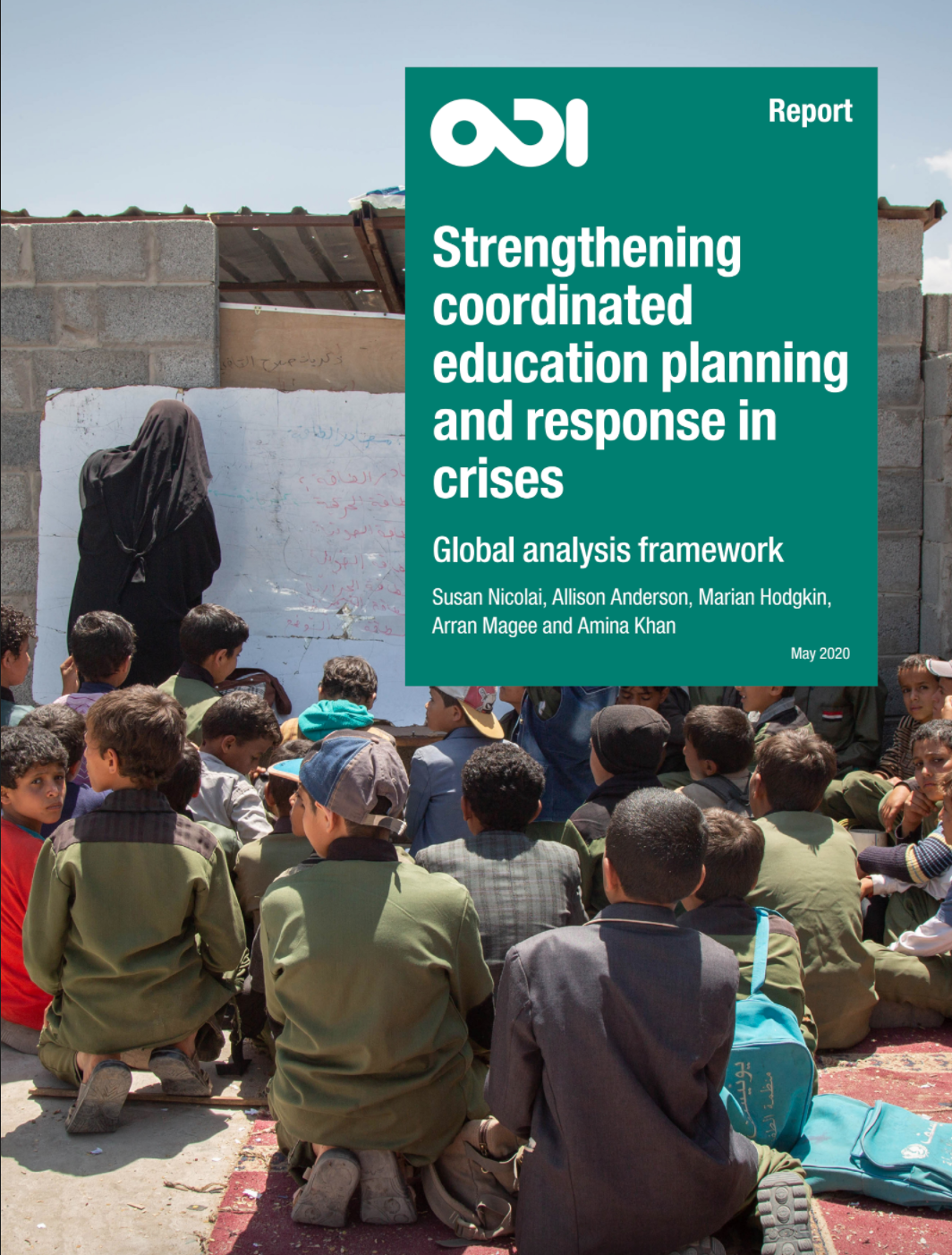
Strengthening Coordinated Education Planning and Response in Crisis Contexts, 2020
This ODI research presents an analysis of formal coordination approaches for education planning in response to emergencies and protracted crises, including Education Clusters, Refugee Education Working Groups and Local Education Groups, drawing on global information and evidence. It further sets out a framework for analysis which will then be applied to six country case studies.
Country Case Studies:
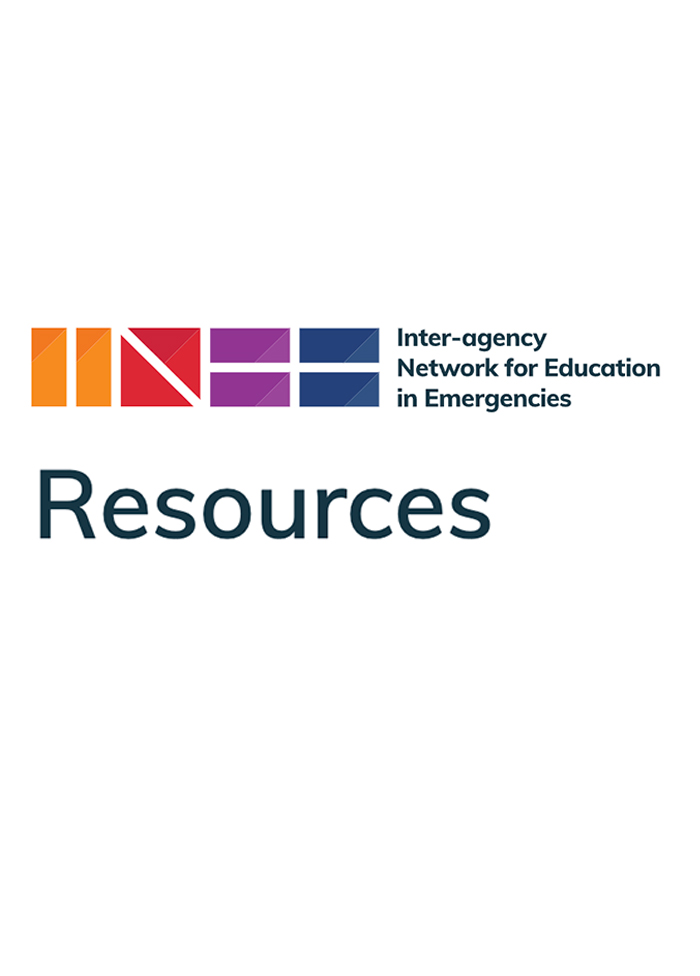
Inter-agency Network for Education in Emergencies (INEE) Resource Database
ECW supports INEE in order to develop and maintain a dynamic database of resources relevant to education in emergencies.
Access the resource database here.
